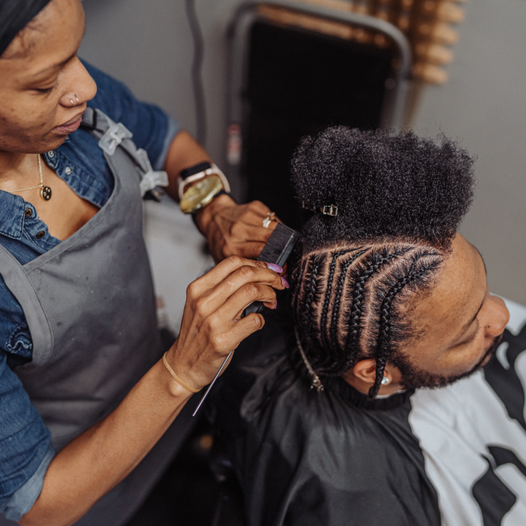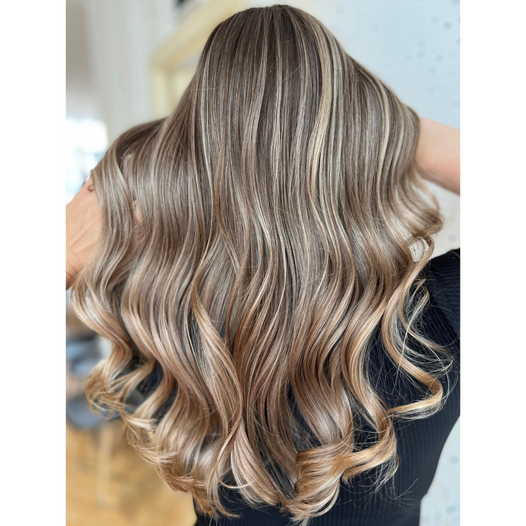
When to Seek Professional Help for Dry Scalp, Dandruff, and Seborrhoeic Dermatitis

Scalp issues like dry scalp, dandruff, and seborrhoeic dermatitis are common and often manageable with over-the-counter products and home remedies. However, there are times when these conditions may require professional intervention. Knowing when to seek help from a dermatologist or healthcare provider is crucial for preventing complications and achieving effective treatment. Here’s a guide on when to seek professional help for dry scalp, dandruff, and seborrhoeic dermatitis.
Understanding the Conditions: A Quick Overview
Dry Scalp: A condition where the scalp lacks sufficient moisture, leading to itching, irritation, and small white flakes.
Dandruff: Characterized by larger, often oily flakes caused by the overgrowth of a yeast-like fungus (*Malassezia*), leading to an itchy and sometimes oily scalp.
Seborrhoeic Dermatitis: A more severe form of dandruff, marked by red, inflamed skin, and greasy, yellowish scales. It can affect other parts of the body, such as the face, chest, and back.
When to Seek Professional Help for Dry Scalp
A dry scalp is usually not a serious condition and can often be managed with proper hair care and moisturizing treatments. However, there are instances when you should consult a professional:
Persistent Dryness and Itching: If your scalp remains dry, itchy, and uncomfortable despite using moisturizing shampoos, conditioners, and oils, it’s time to see a dermatologist. Persistent dryness could indicate an underlying condition like eczema or psoriasis that requires specialized treatment.
Scaling Beyond the Scalp: If the dryness and scaling spread beyond your scalp to your forehead, ears, neck, or other parts of your body, it could be a sign of a more complex skin condition such as seborrhoeic dermatitis or psoriasis. These conditions often require prescription medications and professional management.
Signs of Infection: If you notice signs of infection, such as redness, swelling, pus, or an unusual odour, it’s essential to seek medical attention immediately. Infections can occur if the scalp’s skin becomes cracked or damaged due to excessive dryness, allowing bacteria to enter.
When to Seek Professional Help for Dandruff
Dandruff is often a chronic condition that can be controlled but not completely cured. However, certain situations necessitate professional help:
Severe or Worsening Symptoms: If your dandruff is severe—resulting in large flakes, intense itching, or significant discomfort—or if it’s worsening despite using anti-dandruff shampoos and treatments, you should see a dermatologist. This could indicate a need for stronger, prescription-strength treatments.
Hair Loss: If you experience noticeable hair loss along with dandruff, it’s important to seek medical advice. While mild dandruff typically doesn’t cause hair loss, excessive scratching and inflammation can lead to temporary hair shedding. In some cases, underlying conditions like seborrhoeic dermatitis or a scalp infection might be responsible.
Involvement of Other Body Areas: If dandruff-like symptoms appear on other parts of your body, such as your eyebrows, beard, chest, or back, it may be seborrhoeic dermatitis rather than simple dandruff. A dermatologist can provide a proper diagnosis and appropriate treatment.
When to Seek Professional Help for Seborrhoeic Dermatitis
Seborrhoeic dermatitis is a more serious condition that often requires medical intervention. Here’s when you should definitely see a healthcare professional:
Extensive Skin Involvement: If seborrhoeic dermatitis affects large areas of your scalp, face, or body, it’s important to consult a dermatologist. This condition often requires prescription-strength antifungal treatments, corticosteroids, or other medications to control symptoms and prevent flare-ups.
Resistance to Over-the-Counter Treatments: If over-the-counter antifungal shampoos and topical treatments aren’t improving your symptoms, professional help is necessary. Your dermatologist can prescribe stronger treatments, such as medicated shampoos or topical creams that are more effective.
Recurrence and Chronicity: Seborrhoeic dermatitis often recurs and can become a chronic issue. If you experience frequent flare-ups or continuous symptoms despite treatment, ongoing care from a dermatologist is recommended. They can help develop a long-term management plan to keep the condition under control.
Significant Discomfort or Impact on Quality of Life
If seborrhoeic dermatitis is causing significant discomfort, emotional distress, or impacting your quality of life, it’s time to seek professional help. Severe itching, pain, or embarrassment due to visible scaling can be addressed with appropriate medical care.
What to Expect During a Dermatology Visit
When you visit a dermatologist for dry scalp, dandruff, or seborrhoeic dermatitis, the doctor will typically begin by examining your scalp and skin. They may ask about your symptoms, lifestyle, and any treatments you’ve already tried. In some cases, they might take a skin scraping or biopsy to rule out other conditions.
Based on their findings, the dermatologist may prescribe:
Medicated Shampoos: Stronger formulations than those available over the counter, often containing ingredients like ketoconazole, selenium sulfide, or tar.
Topical Corticosteroids: Creams or ointments to reduce inflammation and itching.
Antifungal Medications: To control the yeast growth associated with seborrhoeic dermatitis and severe dandruff.
Moisturizers and Emollients: Special formulations to hydrate and protect dry scalp skin.
Lifestyle and Diet Advice: Recommendations to reduce triggers and improve overall skin health.
While dry scalp, dandruff, and seborrhoeic dermatitis can often be managed at home, there are times when professional help is necessary. If your symptoms are severe, persistent, or affecting your quality of life, consulting a dermatologist can provide relief and prevent complications. With the right diagnosis and treatment plan, you can effectively manage your scalp condition and enjoy healthier, more comfortable skin.









Leave a comment